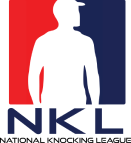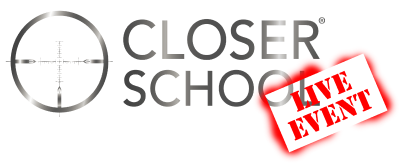Free Sales Training Podcasts have helped podcasting evolve from a hobbyist medium to a professional training platform. For salespeople, the appeal is obvious: you can learn while commuting, exercising, or doing admin work. Listening to seasoned practitioners share real stories brings theory to life.
A recent blog by Peak Sales Recruiting explains that podcasts help sellers sharpen skills, boost productivity and stay motivated. Cognism’s 2025 guide similarly notes that making a habit of listening to top shows is a great way to stay on top of B2B sales trends.
Unlike passive reading, audio content often feels like a personal coaching session—listeners hear tone, humour and nuance that written resources can’t capture.
How to Choose the Right Free Sales Training Podcasts for Your Sales Level
With thousands of shows available, selecting the right podcast is critical. Consider your experience level and goals:
Beginner (0–2 years experience)
New reps should build a solid foundation. Good options include:
- The Sales Evangelist – Donald Kelly’s show covers prospecting basics, attitude and motivation. Episodes are short and actionable.
- Make It Happen Mondays – John Barrows shares weekly tips on personalising outreach, using humour in cold calls and transitioning to more senior roles.
- Sales Babble – Patrick Helmers cuts through jargon and provides no‑fluff advice suitable for any industry.
- Winning at Selling – Emphasis on fundamental skills for the first few months on the job, with consumable, step‑by‑step episodes.
Intermediate (2–5 years experience)
Mid‑career reps should refine specific techniques, often through paid sales training programs that offer targeted, advanced strategies for continued growth.
- Sales Success Stories – Scott Ingram interviews top individual contributors, unearthing habits and routines that drive results.
- Outbound Squad – Jason Bay dives deep into prospecting strategy, covering cold calls, discovery and sequencing.
- Sell or Die – Jeffrey Gitomer and Jennifer Gitomer mix hard and soft skills, from building 90‑day sales plans to active listening.
- Sales Influence – Why People Buy! – Victor Antonio explores the psychology behind purchase decisions, helping reps persuade more effectively.
Advanced (5 + years or leadership)
Senior sellers and managers need strategic insights:
- The Advanced Selling Podcast – Bill Caskey and Bryan Neale provide short, practical advice on enterprise selling, leadership and business growth.
- Sales Gravy – Jeb Blount delivers high‑energy episodes on topics like emotional intelligence, team accountability and pipeline management.
- Sales Strategy & Enablement – Focuses on tools, processes and enablement tactics to improve team performance.
- Reveal: The Revenue Intelligence Podcast – Produced by Gong, this show dissects how data and AI can improve forecasting and coaching.
When choosing, look for hosts with real-world experience, guests who are respected practitioners and topics aligned with your role. The variety across beginner, intermediate and advanced shows ensures there’s always something relevant.
Listening Strategies for Retaining and Applying Techniques
Passive listening often leads to fleeting knowledge. Effective listeners treat podcasts as interactive lessons. The University of North Carolina’s Learning Center notes that taking good notes improves active listening, comprehension and retention. Adopt these strategies:
- Focused listening – For complex topics, listen in a quiet environment with minimal distractions.
- Strategic note‑taking – Jot down key concepts, quotes and ideas in your own words. Use a two‑column approach: note the presenter’s idea on the left and your planned application on the right. This method mirrors the webinar note‑taking strategy suggested in the Definitive Guide.
- Big picture first – On your first pass, listen for overarching themes. Then re‑listen to fill in details and nuanced language.
- Paraphrasing and summarising – After each episode, summarise the main points verbally or in writing. Processing information through your own words improves memory.
- Self‑questioning – Connect the content to your pipeline. Ask, “How does this relate to my current deals?”, “Which discovery question will I use on my next call?”, and “What obstacle might I face implementing this technique?”
These practices transform passive listening into active learning that sticks.
How to Build a Podcast‑Based Sales Learning Plan
A structured plan makes podcast consumption intentional rather than haphazard:
- Identify a skill gap – Determine one area that needs improvement (e.g., discovery calls, closing techniques).
- Curate a listening list – Select two or three episodes across different shows focused on that skill. Use show notes or search functions to find targeted content.
- Schedule listening and discussion – Add the episodes to your calendar, leaving time for notes. In team settings, assign an episode mid‑week and discuss it during a Friday huddle. Everyone shares one actionable takeaway.
- Note–Share–Apply – Each member takes notes, shares insights and commits to testing one tactic before the next meeting.
- Track results – Monitor relevant metrics (e.g., call conversion rate) to see if the implemented technique improves outcomes.
This simple framework transforms podcasts into an ongoing training program rather than background noise.
How Top Reps Use Podcasts for Continuous Learning
High performers treat podcasts as an ongoing source of inspiration and tactical ideas. According to Peak Sales Recruiting, listening regularly sharpens skills and exposes reps to new techniques. Cognism adds that making a daily habit of listening to podcasts is a solid start for staying on top of the competitive B2B landscape.
Elite reps often pick one show to follow consistently but will sample episodes from other podcasts to fill specific gaps. They re‑listen to episodes that resonate, take diligent notes, and set goals to apply new concepts within 24 hours. Most importantly, they maintain curiosity, using podcasts to challenge assumptions and inspire continuous improvement.
FAQs
Are sales podcasts effective for skill development?
Yes. Podcasts provide access to expert advice, case studies and motivation in an accessible format. When combined with active listening and note‑taking, they can materially improve skills. As UNC’s Learning Center notes, taking notes while listening enhances understanding and retention.
Can I use podcast episodes for team training sessions?
Absolutely. Assign a specific episode to your team, then discuss key takeaways during a meeting. This approach exposes everyone to world‑class experts and encourages collective brainstorming on applying techniques.
How often should I listen to new episodes?
Consistency beats volume. One or two focused episodes per week is better than daily passive listening. Scheduling regular “learning time” ensures you have space to digest and apply insights.
What’s the best app to organise and track podcast learning?
Popular apps like Apple Podcasts and Spotify have playlist features that mark episodes as played or unplayed. For more advanced tracking, dedicated apps such as Podcast Tracker offer statistics on listening habits and allow you to organise episodes by topic.























